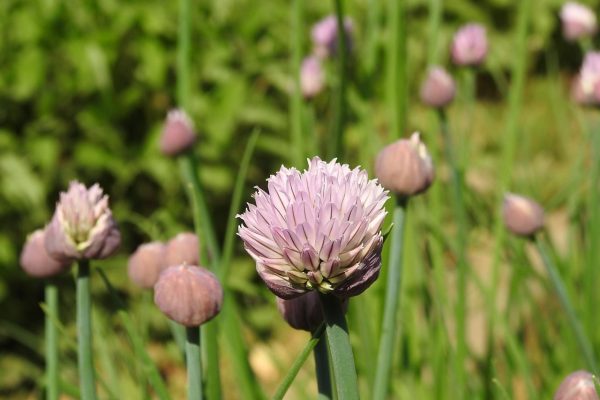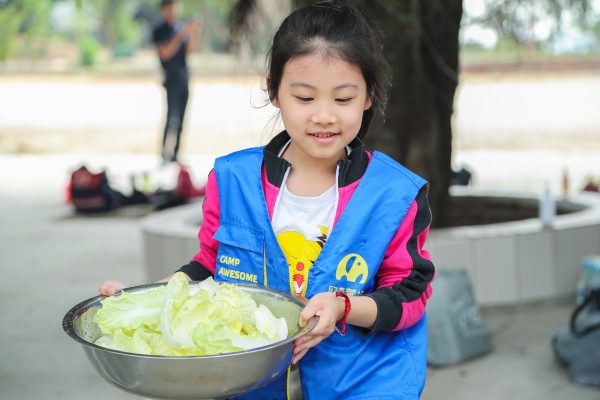This chapter is devoted to the woman who, for any of several reasons, may not want, or has no opportunity, to belong to a Rosh Chodesh group. Most of the focus in the last twenty years, since the revival of Rosh Chodesh, has been on group observance, stemming in part from three roots: the women’s movement, the havurah movement, and orthodox women’s tefillah–prayer groups. From the women’s movement, the concept of group consciousness and group support arose. From the havurah movement came the concept of egalitarian participation, and from the women’s tefillah groups came the idea that women could constitute a davening quorum if certain minyan-necessary prayers were not included. It is from this base that Jewish feminists took a look at the holiday that is specifically devoted to women and decided to breath new life into an old tradition. It is only natural that when they did so they would approach it from a group perspective.
However, Jewish tradition also offers another perspective to view Rosh Chodesh. The three traditional mitzvot (commandments) of women are all private, home-based acts: challah, niddah–observing the laws of family purity, and hadleikat haneirot–lighting Shabbat candles. A midrash (story) connects these three mitzvot to Chana by taking the chet of challah, the nun of niddah, and the hey of haneirot Shabbat to spell her name Ch-a-na. Chana is often viewed as a spiritual woman who held on to her inner belief in God in the face of being called a drunk by the priests as she muttered prayers. She is a good role model for women who are seeking a spiritual life.
It was while I was quietly, on my own, lighting Shabbat candles that I realized that there were probably other women like myself who did not belong to a Rosh Chodesh group. I live in a small, isolated community, and the women in our community have tried now and then over the years to gather to celebrate Rosh Chodesh, but it has been hard to sustain a group and often there are periods of months and years when there is no group with which to mark the holiday. Other women, who live in a more urban setting, might still find no organized group for them to join (and not all of us are able to start a new group). Still others may not feel like being part of a group. They are just not “group people.”
Most of the published Rosh Chodesh resources assume group observance. I am offering suggestions for a woman alone: how to individually celebrate Rosh Chodesh. Women belonging to a group could also adopt some of these suggestions if they have to miss a group due to scheduling or illness.
I offer several suggestions for observing Rosh Chodesh alone. More than anything, these suggestions serve to increase awareness of Rosh Chodesh and in so doing keep a God consciousness for the day. It is easy for me in my day-to-day activities to lose sight of God. Rosh Chodesh is an opportunity to be reminded of my connection to God, and I welcome the holiday for just this reason. Shabbat has been described as an island of time by Rabbi Abraham Joshua Heschel. In a similar vein, Rosh Chodesh can be thought of as pockets of activities that can be interspersed throughout the day with each activity an opportunity to affirm one’s Judaism and connection to God.
I have experimented with various activities and, over time, return to my favorites. I haven’t worried if my observance has varied. The important thing is to keep alive the kavanah – heartfelt connection – for Rosh Chodesh.
Although all observances of Rosh Chodesh are spiritual because they connect me to Hashem, I divide them into two categories: daily activities and religious activities.
Daily Activities
1. Perhaps the simplest thing I do is mark into my calendar Rosh Chodesh for each month. I don’t use a Jewish calendar daily, as it doesn’t fit my appointment schedule. I only use a Jewish calendar as a reference and, if I rely only on it, Rosh Chodesh surprises me by coming and going, and I miss it. I need to mark it big in my daily appointment book.
2. Another easy thing I do is to phone one or two friends who are aware of Rosh Chodesh and wish them a “Chodesh tov–a good month.”
3. I have a small pottery dish, made by a Jewish potter, with the phases of the moon painted on it. I fill it with water for Miriam who led the Hebrews in the desert to water as they wandered for forty years. She also led the women in singing and dancing after crossing the Red Sea. For me she is a symbol of early women celebrating together. I stand and sing Aryeh Hirschfield’s song, “Wings Of Peace.”
U’fros aleinu, sukkat shalom,
Spread over us, Wings of peace, shalom,
Draw water in joy, from the living well,
Draw water in joy, from the living well,
Mayim chaim, waters of life, shalom.
4. As the moon is round, I try to serve round food or food in round dishes. This reminds me of the moon, and although the Rosh Chodesh moon is a thin crescent, I am more aware of the moon’s phase while I am cooking. A cake in a round pan, a round loaf of bread, a fresh dish of blueberries, and melon balls in a fruit salad are a few ideas.
5. Since Rosh Chodesh is celebrated on the new moon, I save new things for that occasion. I wait until Rosh Chodesh to start a new project or wear a new article of clothing. Again, in making the decision to wait I am remembering that God is part of my life and that I am a Jew. Although a simple, private act, of which only I am perhaps aware, it will nonetheless contribute to the intentionality of my spiritual life.
6. Like the special Shabbat bread, so, too, on Rosh Chodesh I have tried to make a round bread. Many times I have fantasized a special Rosh Chodesh bread cover like a challah cover, portraying Rosh Chodesh themes; such as the moon, women, and water.
7. On Shabbat I try to restrict my reading to Jewish material, such as an analysis of women and Judaism or simply a novel with a Jewish theme or characters. Because Shabbat is not a workday and my activities are restricted, I have more time to read. When I have the opportunity to read on Rosh Chodesh, I also choose Jewish material.
Religious Activities
1. Lighting a candle Erev Rosh Chodesh – the evening of Rosh Chodesh –helps me separate the day from the rest of the month, just as lighting Shabbat candles helps me separate Shabbat from the rest of the week. A friend has a special candlestick that she uses just for Rosh Chodesh. It is ceramic and adorned with moons. The moon is associated with a special type of light that is soft and feminine. I say the following blessing:
Baruch atah Adonai, m’chadesh hachadashim.
Blessed are You, who renews the months.
2. Although I generally do not daven on a daily basis, I do sometimes on Rosh Chodesh.
3. I intentionally use Rosh Chodesh as a time to study and increase my liturgical skills. Sometimes I spend additional time preparing a Torah reading.
4. One of my most rewarding Rosh Chodesh activities, was to form a chevrusah – two-person study partnership. We met each Rosh Chodesh evening for three hours over a period of four years. As “homework,” we each read a Parshat haShavuah – weekly Torah portion – for the upcoming month and independently selected one topic or theme to research. We would share our Torah-related questions and concerns with each other. This could be done as a solo activity, but the exciting exchange of ideas would be missed.
In closing, Rosh Chodesh does not need to be a group experience. Our heritage shows us that although a minyan for creating community is necessary for some observances, as individuals we can also observe solo activities to strengthen our involvement with Judaism and God.
Originally published in Celebrating the New Moon: A Rosh Chodesh Anthology, ed. Susan Berrin (Jason Aronson: 1996), pp. 107-110. Used by permission of the editor.











